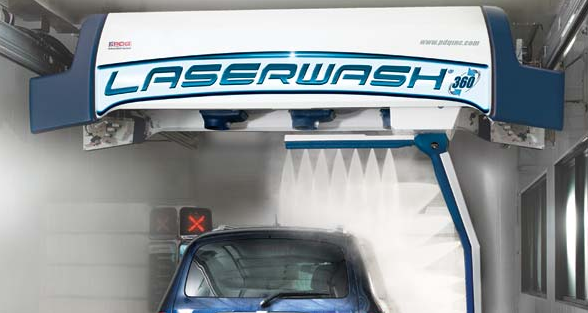LAS VEGAS – BLACK HAT USA – Researchers have created proof-of-concept (PoC) exploits to demonstrate how hackers can cause physical damage to vehicles and injure their occupants by remotely hijacking a connected car wash.
The attack was detailed in a presentation at the Black Hat security conference this week by WhiteScope founder Billy Rios, a researcher best known for finding vulnerabilities in medical devices and industrial control systems (ICS), and Dr. Jonathan Butts, founder of QED Secure Solutions and committee chair for the IFIP Working Group on Critical Infrastructure Protection.
The experts pointed out that automated car wash systems are essentially ICS and, just like industrial systems, they can be hacked and manipulated.
Their research has focused on LaserWash, an automated car wash which, according to its creator, PDQ Manufacturing, can “think for itself.”
Rios and Butts discovered that the web-based administration panel for the product, which is in many cases accessible directly from the Internet, has many features, including for sending email alerts and a widget for social media.
However, the more problematic issue is that both the owner and engineer accounts for the web interface are protected by weak default passwords. They also discovered that the authentication mechanism can be bypassed by a hacker.
Once they gain access to the web interface, a hacker can take control of the car wash system. The PoCs developed by the researchers show how an attacker can disable safety signals and take control of the bay doors, which can be used to either lock the vehicle in or unexpectedly strike it and its occupants. Hackers can also take control of the robotic washing arm and continuously discharge water or hit the vehicle and its occupants, the researchers said.
Rios first informed PDQ of the LaserWash vulnerabilities back in February 2015, just before disclosing his findings at Kaspersky’s Security Analyst Summit. However, the vendor ignored Rios for more than a year.
Now that Rios and Butts developed PoC exploits that demonstrate the risks in a real world scenario, PDQ has confirmed the existence of the flaws and claims it’s working on developing fixes.
According to an advisory published by ICS-CERT on Thursday, the vulnerabilities affect several models of PDQ’s LaserWash, Laser Jet and ProTouch automatic car wash systems.
ICS-CERT warned that the flaws can be exploited remotely even by an attacker with a low skill level, and provided a series of measures recommended by the manufacturer for mitigating the threat. The steps include changing the default password and ensuring that the equipment is behind a firewall.
Related: Segway miniPRO Flaws Put Riders at Risk of Injury
Related: Industrial Robots Vulnerable to Remote Hacker Attacks












